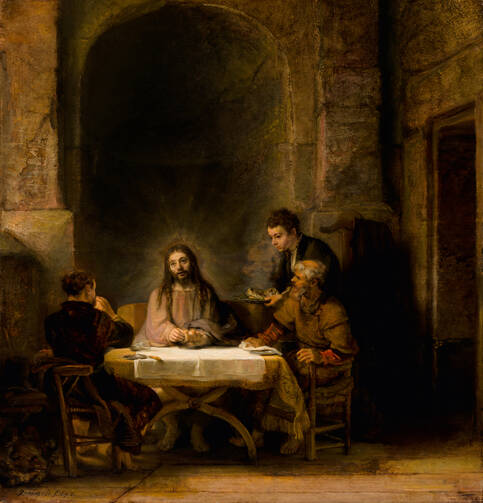Yesterday I wrote about the connection between education and Emmaus, noting that in failing to recognize Jesus, the disciples were failing to recognize not just the person of Jesus but, by extension, truth itself. This has direct implications for educators and education: It is not enough to put truth in front of students; it is not enough to give them correct information. As made clear by the Gospel, merely being in the presence of truth doesn't necessarily mean we know that it's the truth, let alone understand its significance. In the Emmaus story, it wasn't until the disciples broke bread with Jesus and showed him hospitality that they recognized him.
In connection with this subject, I did some additional reading, and in the course of some research came across a statement from Pope Benedict XVI eloquently addressing similar themes. In 2008, Pope Benedict spoke in Paris at the College des Bernardins on the subject of theology and Western culture. In speaking of monasticism and the learning that emerged in monasteries, the pope said the formation that occurred included "the formation of reason -- education -- through which man learns to perceive, in the midst of words, the Word itself." He continues:
Yet in order to have a full vision of the culture of the word, which essentially pertains to the search for God, we must take a further step. The Word which opens the path of that search, and is to be identified with this path, is a shared word. True, it pierces every individual to the heart (cf. Acts 2:37). Gregory the Great describes this [as] a sharp stabbing pain, which tears open our sleeping soul and awakens us, making us attentive to the essential reality, to God....But in the process, it also makes us attentive to one another. The word does not lead to a purely individual path of mystical immersion, but to the pilgrim fellowship of faith. And so this word must not only be pondered, but also correctly read. As in the rabbinic schools, so too with the monks, reading by the individual is at the same time a corporate activity.








